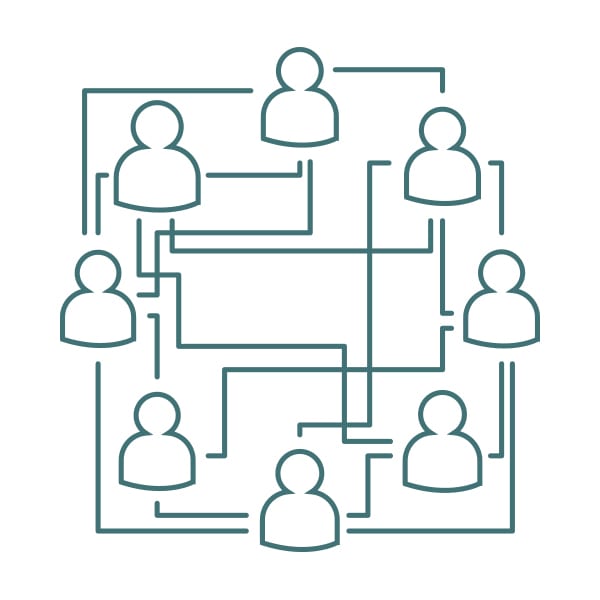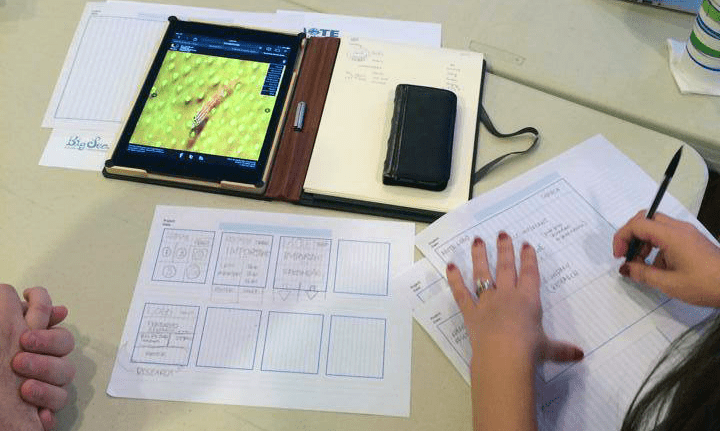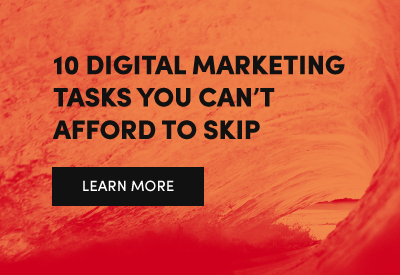The Makings of a Great Project Kickoff Meeting
A kickoff meeting is the genesis of any new project at Big Sea, and it’s usually an inspiring, exciting event. Yes, I just said that a meeting is inspiring. Exciting even!
We gain an amazing understanding of your business and team dynamics, and leave the meeting ready to explore all kinds of creative solutions. You get to dive deeply into your own organization’s needs and desires, problems and successes. We all get to know each other, get familiar with the process in front of us, and get to build a shared vision.

Throwing all of your most expensive and important folks and our project team members into a room doesn’t just magically create this outcome, though. Nothing could be worse than a room full of awkward strangers spending hours reiterating details and information we all already know. We’ve been there. We know that pain.
A great kickoff meeting requires a few sacrifices from you, and a lot of preparation from us.
5 Essentials for Hosting Great Project Kickoff Meetings
1. Time
We’ll need at least 2 hours for a small project that’s not too complex, but we prefer at least four and can easily spend days with you and your team if you’ll let us. What you have available, what the project needs and what we recommend will all come into play when we schedule this thing. You won’t believe how easy it is to talk about your business and your communication strategy once we get you going. Our goal is to dig as deeply into your business or organization as possible, so we’ve got some great questions prepared and a number of activities to spark our thinking too. Get ready.
2. Everyone Important
We want the group to be robust enough to represent all of the voices necessary, but small enough that true conversations can happen and stay relevant. The group should be curated in a way that all of the organization’s goals are represented but not necessarily duplicated. And we absolutely need whomever will be involved in the final sign-off on milestones to be there. We will try to do stakeholder interviews prior to this meeting if at all possible, so that might trim the list of folks necessary at the kickoff meeting, but you should know that this process – from kickoff through launch – will require some of your time and talents, too.
3. Great Preparation
There are a number of things we like to be armed with before we show up for the kickoff meeting.
- Analytics. We need to see your numbers. With access to your analytics, we can get a good understanding of how your users are using your website, what content they find important (which is often different than the content you find important), the technology we’ll have to support and how we’ll approach search engine rank maintenance.
- Stakeholder interviews. I like to have brief (15-20 minute) phone conversations with everyone that has a stake in the project’s success. A lot of this happens during our initial proposal phase through sit-down meetings or conference calls, but I’ll usually try to sneak in a few more so that I’m prepared for the kickoff meeting.
- Any survey or research data. You might have contracted us to do the research, or you may have some prepared for us already. Either way, we want to dive deeply into your organization through quantitative and qualitative research.
- Competitive analysis. We’ll review your industry, your competitors and your peers so we can better understand why they are where they are and why you are where you are.
- Design inspiration. We’ll ask you to help select a few sites that you really like, and during our meeting, we’ll walk through an exercise that will help us understand what’s drawing you to those sites and why or why not a similar approach might be right for your project.
Of course, we’ll be sure to send you a list of everything we need before our meeting so that you can also prepare. Don’t worry.
4. An Agenda
We like to prepare the agenda a few days in advance and share it with your team so that you all know what to expect. We design a pretty version for your team, then keep a more gritty, note-filled version for ourselves on Google Drive. Depending on the project and what we know or don’t already, the agenda generally looks something like this:
- Introductions: Go around the room and introduce ourselves and describe our role in the project.
- Process: We review our preliminary project plan and approach, demo some of our communication tools like Basecamp and review logistical issues like hosting, security or internal tools.
- Discussion Questions: We dive next into actual discussion questions that we prepare ahead of time and throw in any exercises that might be necessary to help answer the questions. We focus on our strategic approach and a goals analysis, project priorities, content and information architecture, and finally, some aesthetics.
- Activities: Well-planned activities can get great discussion going, surfacing key challenges from every perspective. We use activities whenever time permits, and we have a few favorites that we choose from, depending on the needs of the project. Some of our favorites are a modified Design Gut Check, a Design Studio, a Card Sort, and some guided Values discussions.
- Risks and Tradeoffs: We try to lead a very frank discussion about what we see as inhibiting our project success, what elements of the project might prove troublesome or difficult, and how we’ll approach problems when they arise.
- Dates and Milestones: At this point, our project plan is pretty loose, but we try to give you an idea of when to expect things from us, and when we need things from you.
5. An Open Mind
Let go of your biases and think about your organization in the abstract. Be open to approaching your workflows and messaging in new and different ways. Think less about your competitors and more about your own future. Be open, be honest, and be pumped! We’re going to build something great together!

Resources:
- Awesome kickoff meeting activity ideas from Good Kickoff Meetings.
- Kickass Kickoff Meetings at A List Apart.

